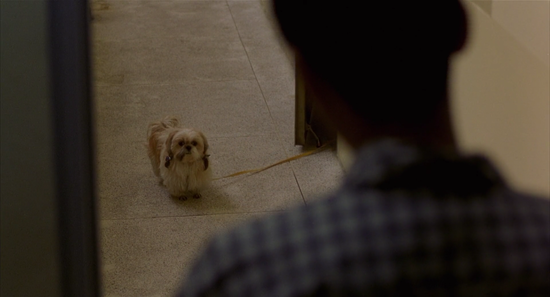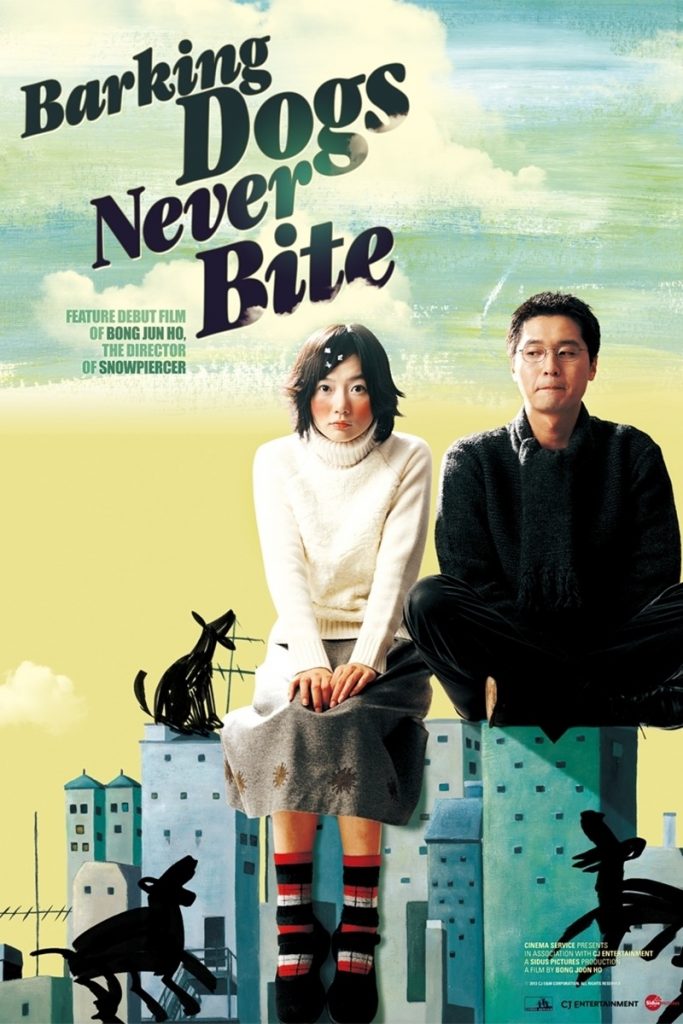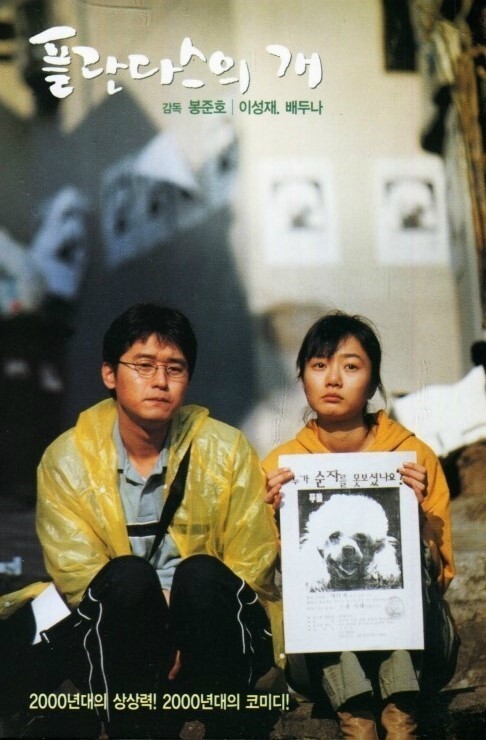
Barking Dogs Never Bite is a dark comedy film directed by Bong Joon-ho, who has received critical praise for his recent filmography, in the same genre, Parasite. This film deals with a seemingly small incident about the disappearance of dogs in one apartment complex, but it raises questions about social morality and justice problems prevalent in human society by capturing the multidimensional relationship between humans and animals.
Ko Yun-Ju, an unemployed academic who desperately wants to be a professor, is agonizing over whether he should bribe the dean to settle into the corrupted but powerful system. Meanwhile, the barking of a dog in the same apartment stimulates Yun-Ju’s nerves, which leads him to kidnap a Shih Tzu that lives close to his flat. But it eventually ends up killed by Byun janitor, an apartment security guard, to be turned into a dog meat soup. However, Yun-Ju now faces a dog itself in his own flat, which his wife has brought. Yet, as this Toy Poodle (Soon-Ja) goes missing, he regains his morality by joining forces with a bookkeeper and custodian of the apartment complex, Park Hyun-Nam to recover Soon-Ja.
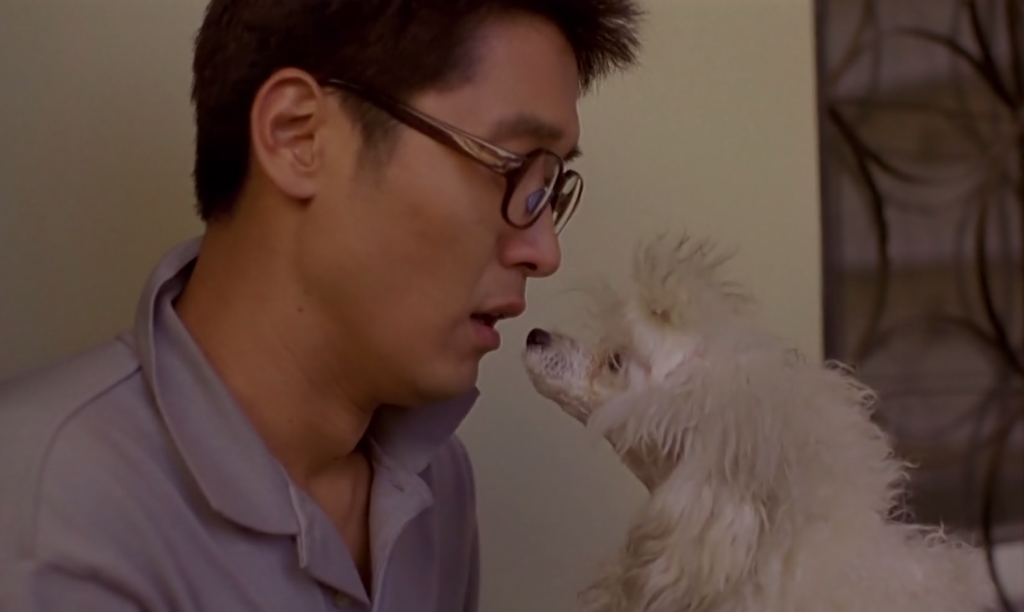
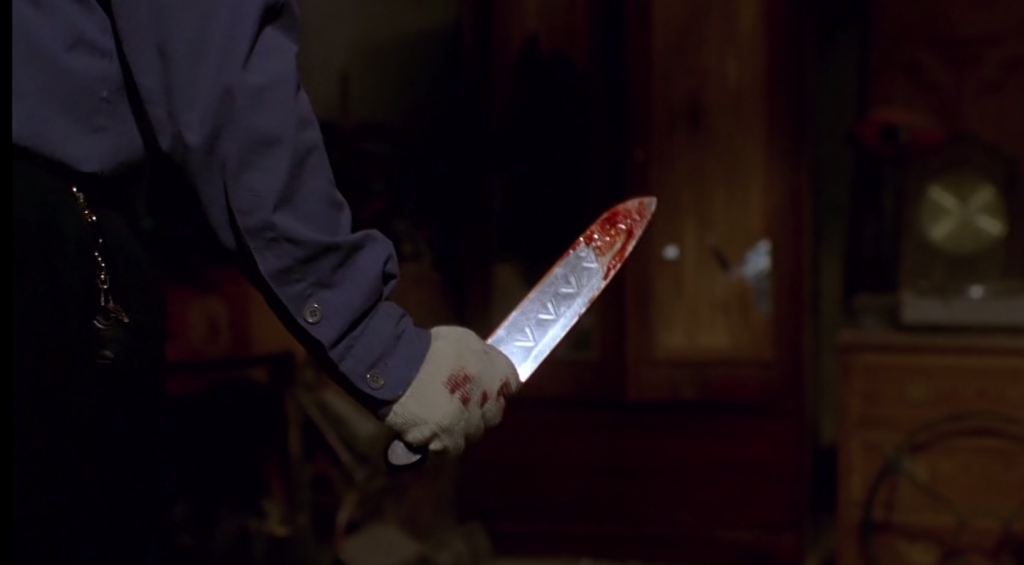
The director effectively utilized the genre of black comedy to provide a serious but humorous way to the screen with social problems related to animals and humans that could be sensitive to the audience. Black comedy tends to project humor from the suffering of a protagonist in the narrative or from the transgression of taboos, allowing the filmmaker to stress a strong statement about society (Connard). According to Connard’s definition, “black comedy is the distorted sideshow mirror that exaggerates our imperfections”. Bong Joon-ho, who effectively applied these characteristics on the screen, brings a human-animal relationship through pet keeping and connects it with the problems in human society by presenting problems such as dog meat eating practices and animal abuse being enacted by humans, etc.
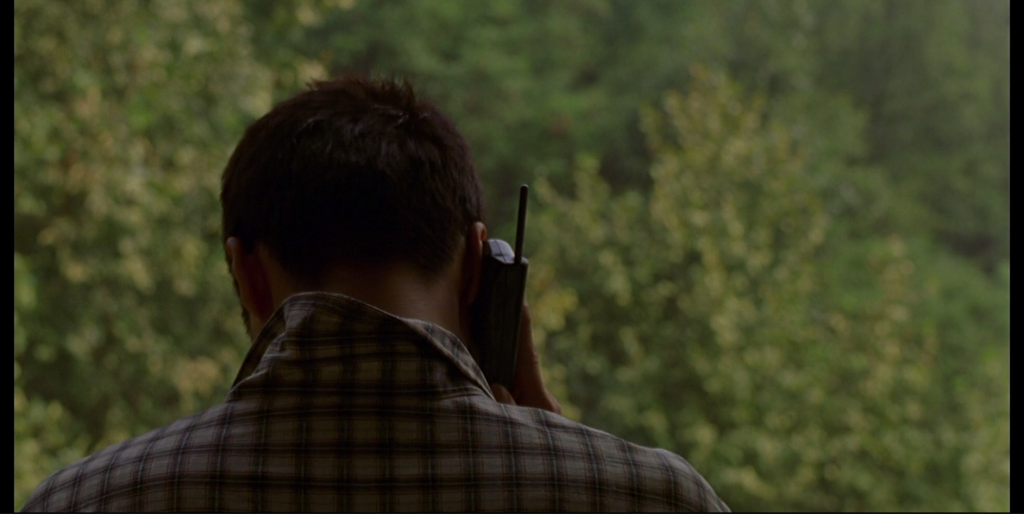

In this movie, Bong Joon-ho used the element pet keeping to shine a light on the problems of human society and reflect on morality through the relationship between humans and animals. First, the attitude of humans toward animals is illuminated through ‘pet keeping’. And this human-animal relationship ultimately accuses problems in human society which cause humans to do certain behavior. The first scene of the movie starts with the barking sound of a dog. The main character, Yun-Ju, talks to his senior over the phone and complains about the difficulties he has in obtaining a professorship. However, the call, which could have been comforting Yun-Ju, is interrupted by the loud and sharp barking of a dog in the apartment complex. As the actual dog which is barking in the frame is not apparently revealed, the audience first sympathizes with Yun-Ju’s emotion, because until now, a dog has been portrayed as an annoying sound in the background of people’s living environment. However, the appearance of Shih Tzu, a defenseless dog raised by an elementary school girl right after the barking scene gives a perception that Yun-Ju, who kidnaps dogs including Shih Tzu just because he is stressed by the noise, implies he is a morally perverse person. The appearance of the dog, which is to be the very first one to be sacrificed by humans in the film, is presented in a frame in which the camera is tilted according to the dog’s point of view, which emphasizes the innocence of the pet-kept dog as Yun-Ju appears in the scene through the dog’s eyes. In addition, Yun-Ju’s cruelty is further highlighted by the camera’s focus on his attempt to take the dog to the rooftop and drop it to death, after taking it out of a plastic bag (which reflects his attitude toward living animals- as if it is just an object, like groceries). The camera spots the leash dangerously dangling out of the railing, and the dog is trembling in Yun-Ju’s hand.
<Figure 7>
However, if Yun-Ju’s behavior is interpreted in connection with the social situation, it can be seen that the problem of corrupt social power distribution exists lays under Yun-Ju’s behavior of abusing such animals. For Yun-Ju, who is in agony, the barking of this dog might have stimulated his inner sense of defeat toward the leisure class who raises pets, which he sees as a ‘luxury item’, which is bound to be the subject of hostility. Therefore, for this reason, it can be said that Yun-Ju eventually tried to threaten humans and their animals who are being kept in affordable houses. In addition, Yun-Ju’s behavior ultimately raises basic questions to the audience, such as ‘Is it okay to raise a pet dog in a community house?’ and ‘Is it okay for the owner to perform pet neutralization, vocal cord removal, or cosmetic surgery according to only their will?’
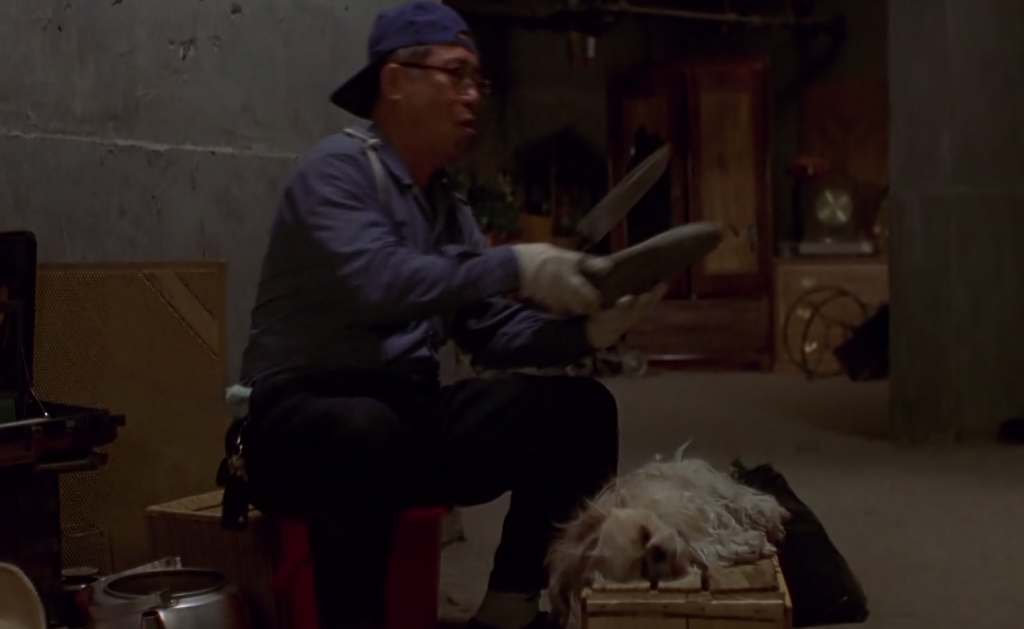
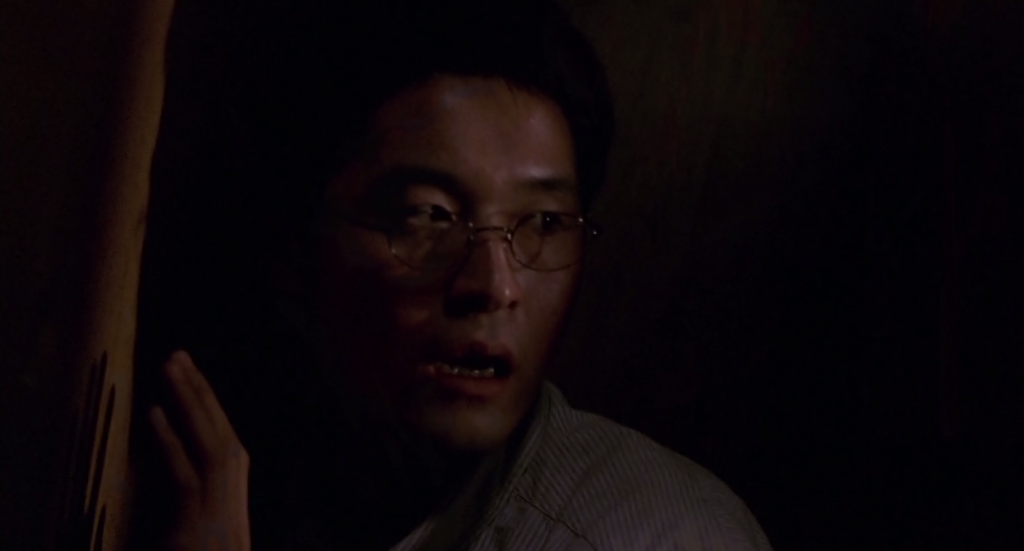
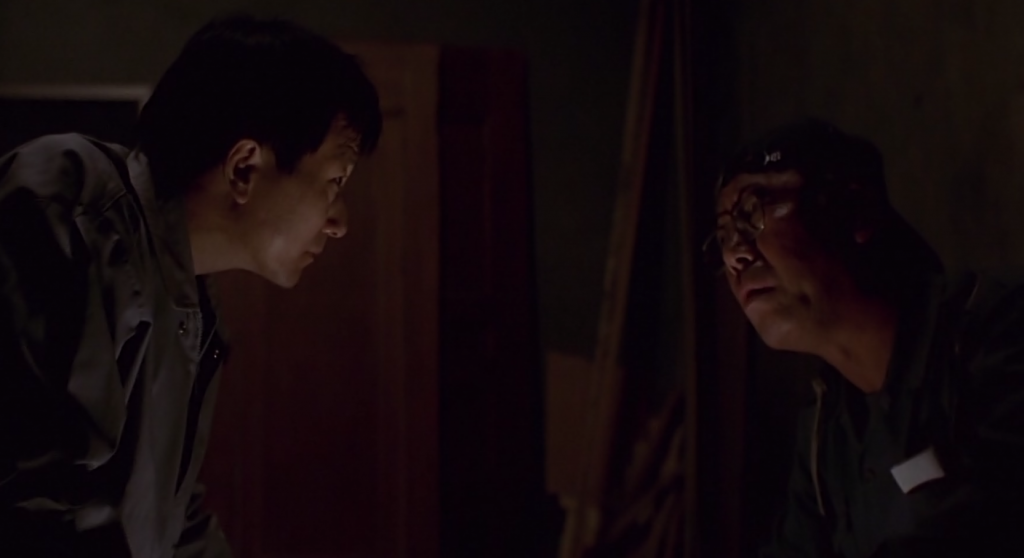
Another big problem this ‘pet-keeping’ and ‘pet-loosing’ theme of the film highlights in human-animal relationships is the culture of eating dog meat. Shih Tzu that was confined under the basement, even though Yun-Ju later tries to release it to be saved, ends up being killed by Byun janitor. After listening to the barking sound of a dog, Yun-Ju eagerly looks for the origin of the sound, which he had thought he got rid of successfully, but turned out to be unsuccessful at all. The sound of thrilling music as a background effect and the shaky camera then projects the fact Yun-Ju is now in hurry to rectify the problem. Yet, we still to be aware that at this stage, the reason why he tried to correct the problem is to release the wrong dog he had mistaken, and to liquidate Min Pin, the actual barking dog. As he reached the basement, he finds out the dog is placed on the cutting board, waiting to be butchered into meat pieces for the stew by Byun janitor. The camera captures this process from the viewpoint of Yun-Ju, hiding in the closet where he first trapped Shih Tzu. Now the atmosphere of the film turns into a thriller, where Byun janitor tries to conceal the ‘meal’ time he is spending secretly from disrupters such as Yun-Ju and his fellow worker. Thus, the intensified mood is made when Byun janitor holds a knife and seeks the origin of the sound when he herds the phone bell ringing of Yun-Ju’s phone and when he tells an old creepy scary story to his co-worker to guard his ‘meat stew’. But later, this scene turns into typical black comedy, where a homeless man who was also hiding and spending time under the basement appeared from nowhere and finished all the dog meat stew that Byun janitor tried to secure so hard. Through this scene, we can, of course, notify the controversial topic related to dog eating habits, but also the corruption and absence of justice. Though Byun janitor’s job is to secure the safety of all the residents in the apartment, he is the one who kills the pet of the residents and even unaware of the fact that there is derelict invading the residences’ living space where it should be supposed to be secured.
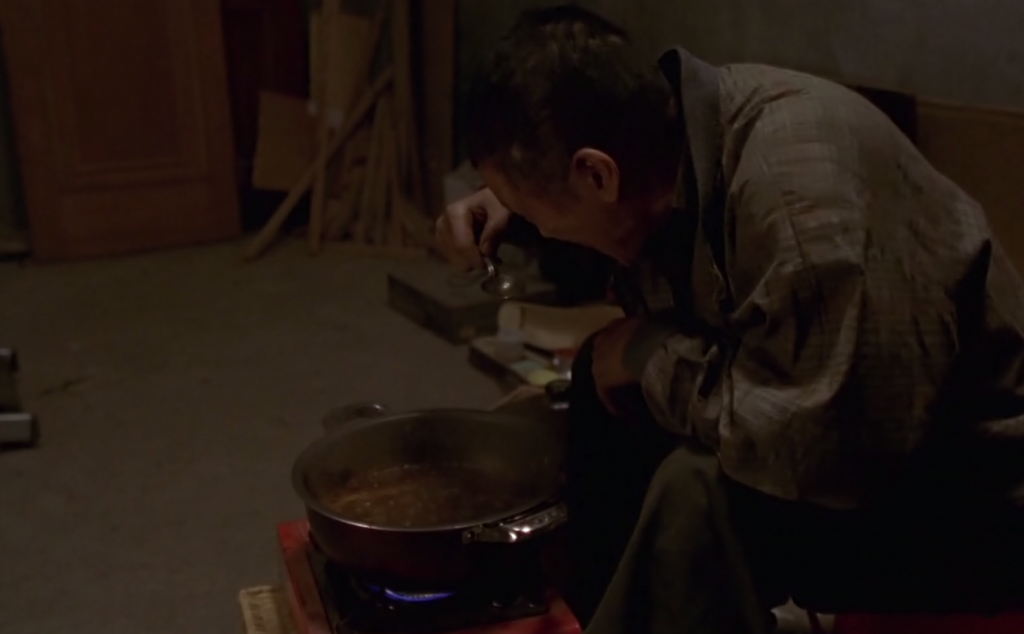
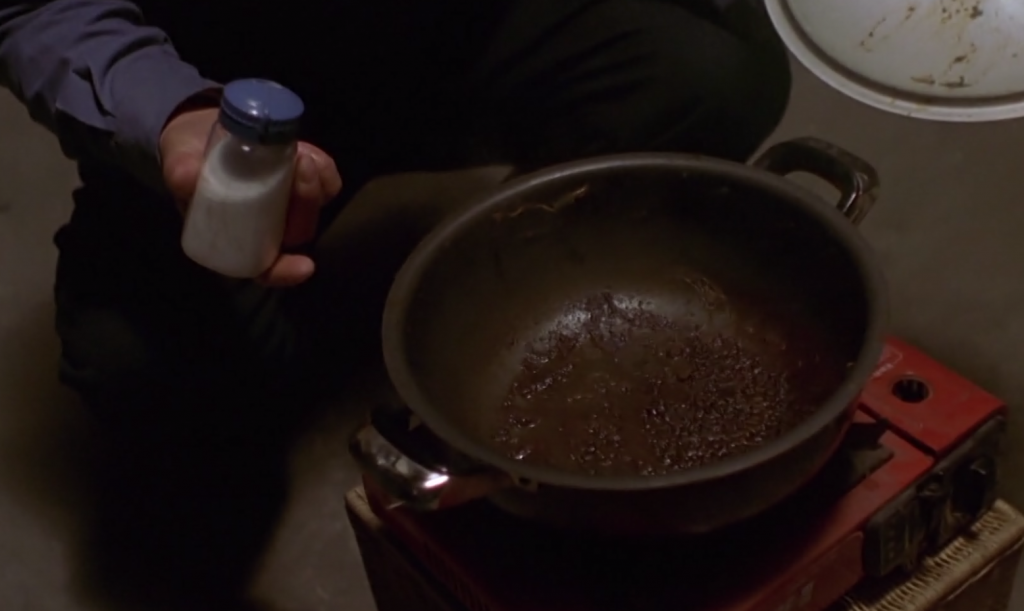
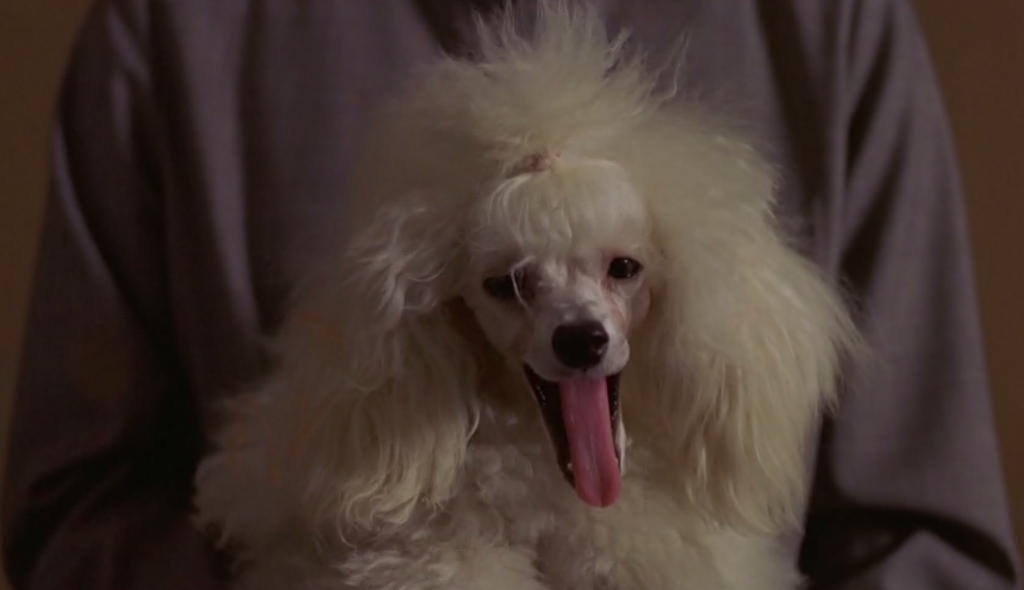
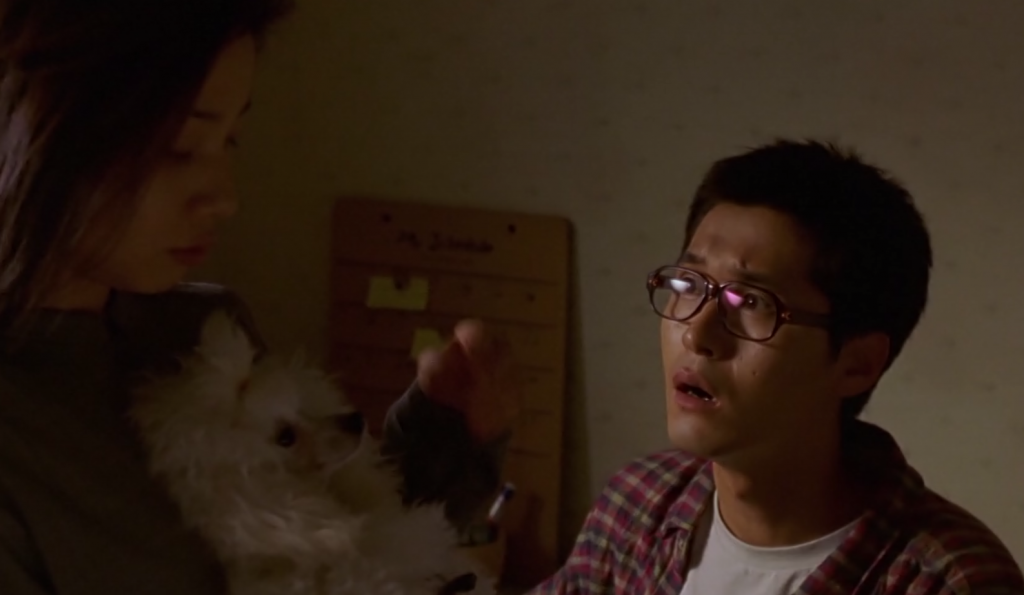
Yet, a sign of morality recovery seems to appear in the plot when Yun-Ju’s wife, Eun-Sil brings Toy Poodle (Soon-Ja) to the house. After killing Min Pin at the rooftop and returning home with a relieved feeling from a barking noise, Yun-Ju finds out a dog in his house. After arguing about ‘pet-keeping’, and losing Toy Poodle Yun-Ju realizes the real meaning behind the pet. Eun-Sil brought a dog after she has been fired from her job, which also highlights sexism in the workplace, where women have to leave their job when she gets pregnant.
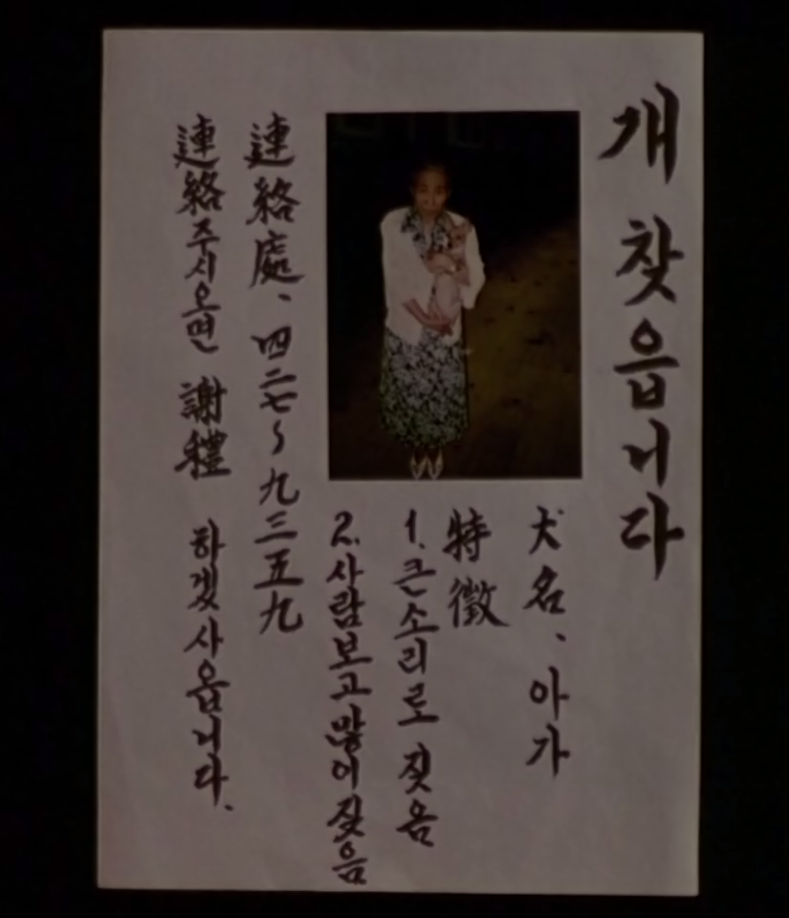
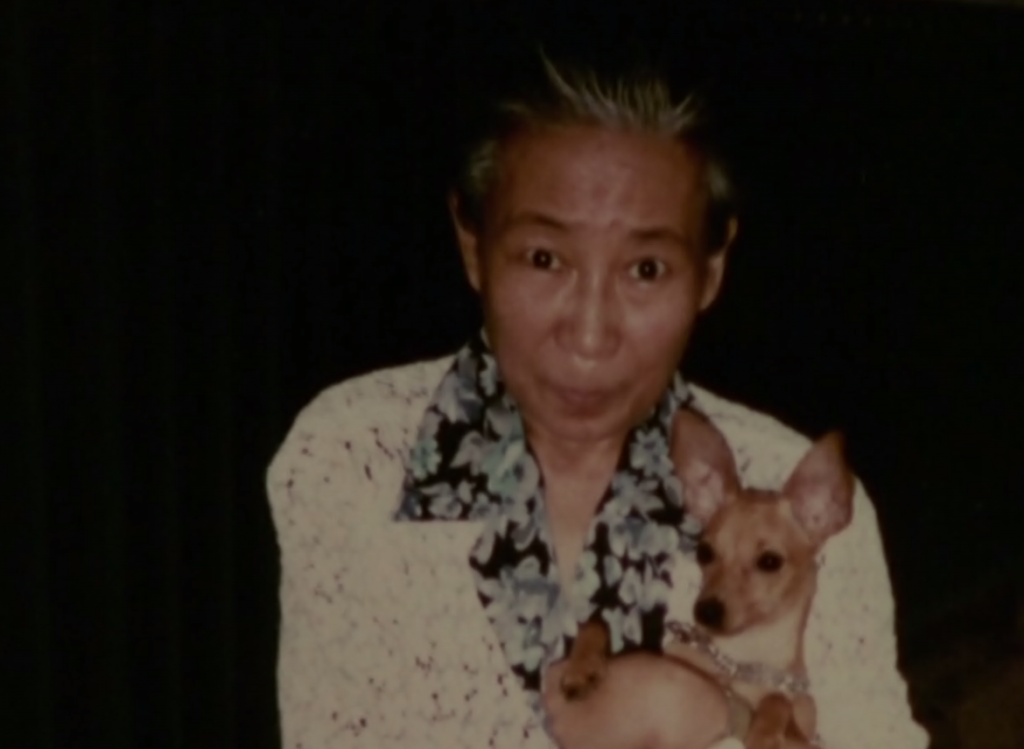
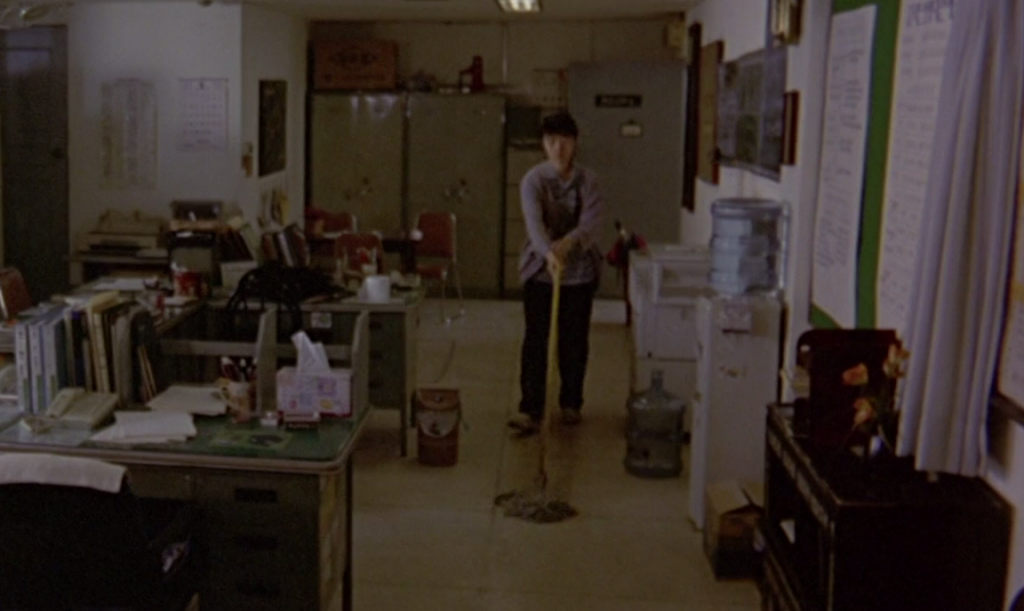
Through facing the real relationship between the pet animal and human, where a pet can be a reason for a person to carry on one’s life (the old lady who is living alone, called her Min Pin “baby” and treated It like a family member, and Eun-Sil bringing a dog to the house after her carrier breaks, trying to start a new life with the pet), Yun-Ju now genuinely tries to recover what he has done trying to restore justice, which has been absent in the society, as he starts to work with Hyun-Nam, who is portrayed to be a hardworking and pure person (as she turns up in the office earlier than the others to clean the working place, offering seats to people who needs help, willingly helping a child who has lost her Shih Tzu).
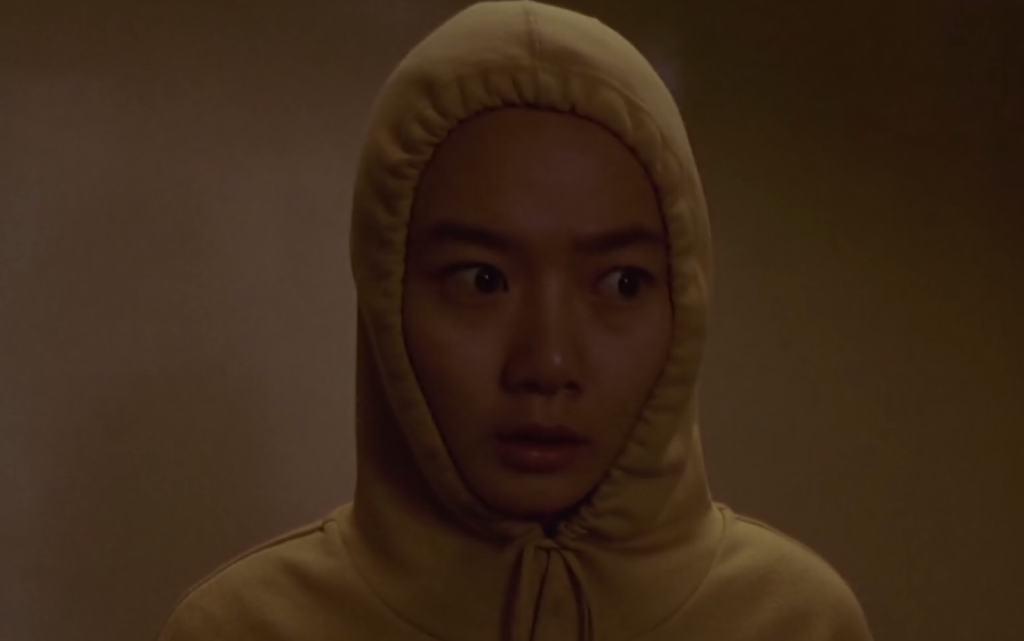
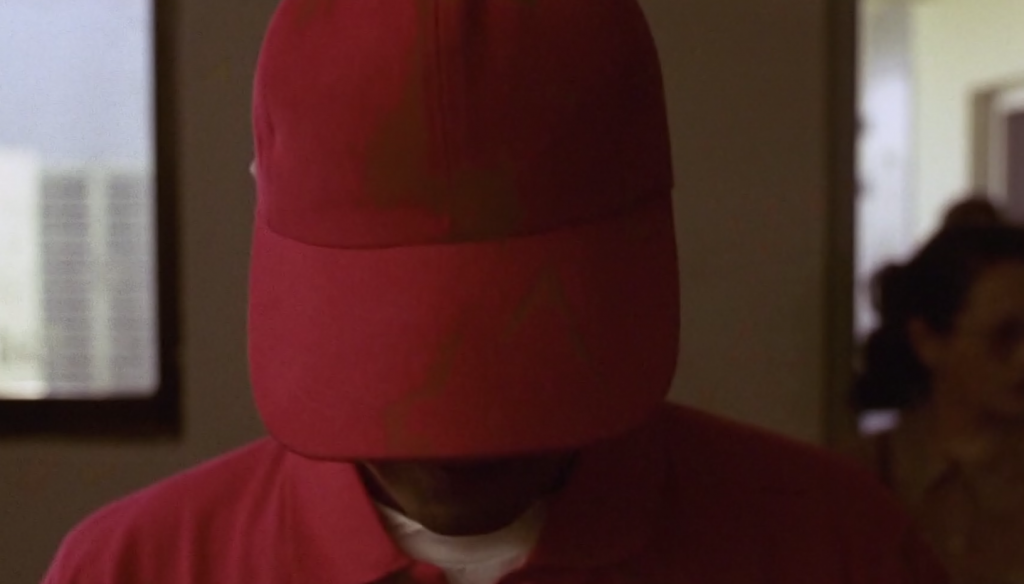
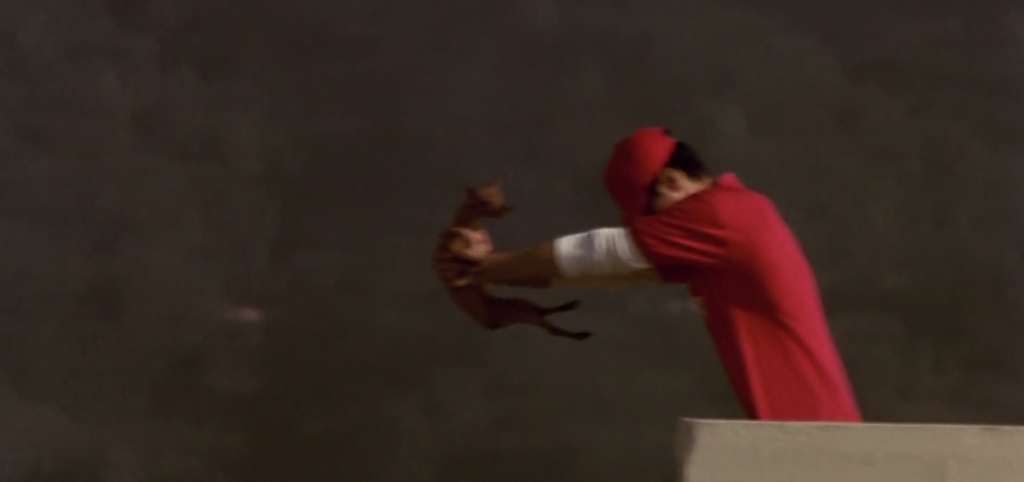
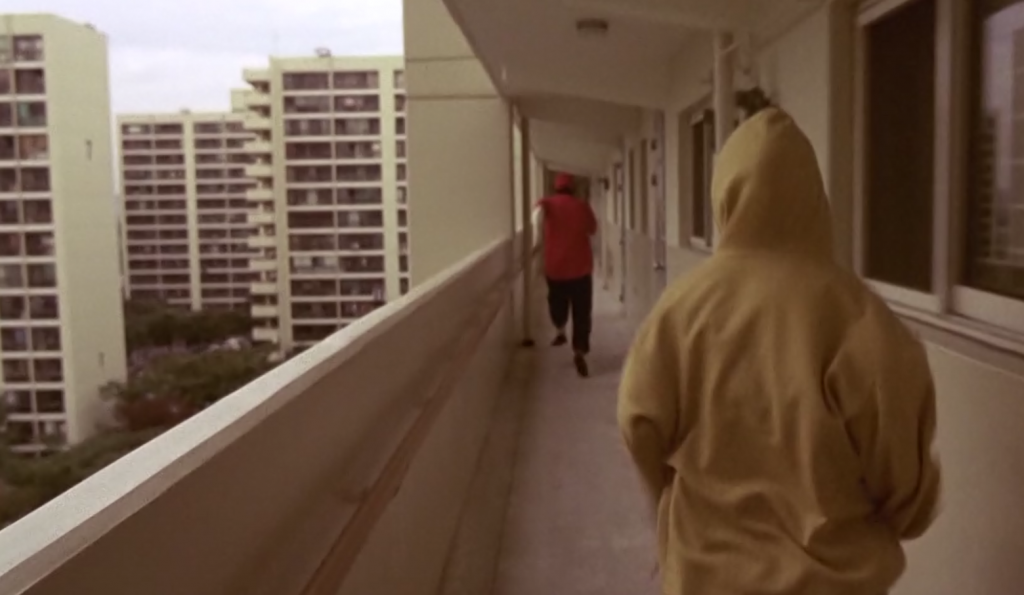
Then now, the human-animal relationship that has been presented to highlight the problem in society even extends to the moral change of the human. This is effectively revealed through the color of the characters wear in the scene. First, Yun-Ju was wearing a red shirt and cap when he was killing Min Pin, and on the other hand, Hyun-Nam was wearing a yellow hoodie when she was trying to catch the serial pet killer. Then, after Yun-Ju has been morally awakened, he appears on the screen, wearing a yellow raincoat. This symmetrically matches Hyun-Nam’s yellow hoodie, and this ‘yellow’ corps sticks together to recover Soon-Ja as well as the justice related to the human-animal relationship as well as other social problems that have been projected in the film.
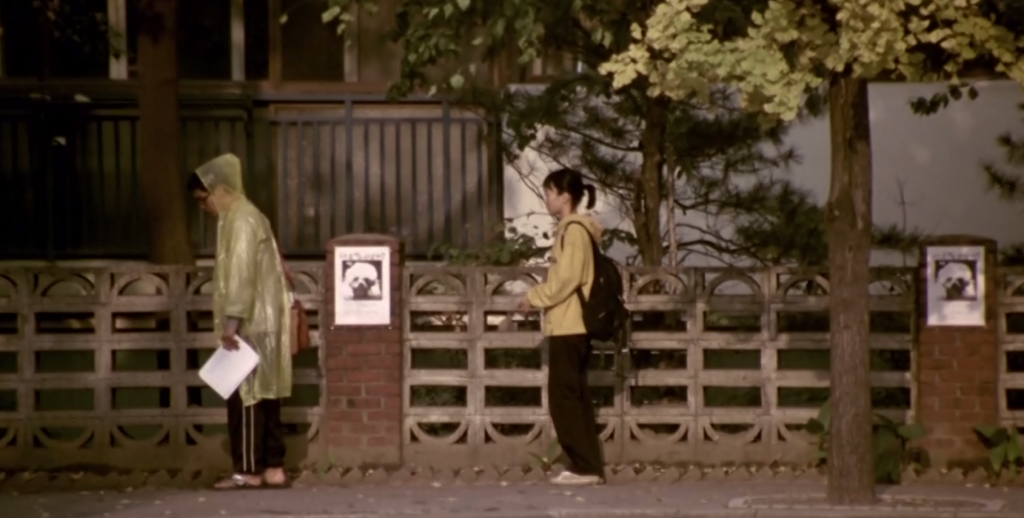
And the symbol of yellow is emphasized when Hyun-Nam finds Soon-Ja in danger of getting killed by the homeless man to be turned into meat. Though the situation she was facing was scary, Hyun-Nam sees (or camera captures) an illusion of crowds, people all wearing a yellow raincoat, cheering up for her to take an action as yellow glitters fall from the sky.
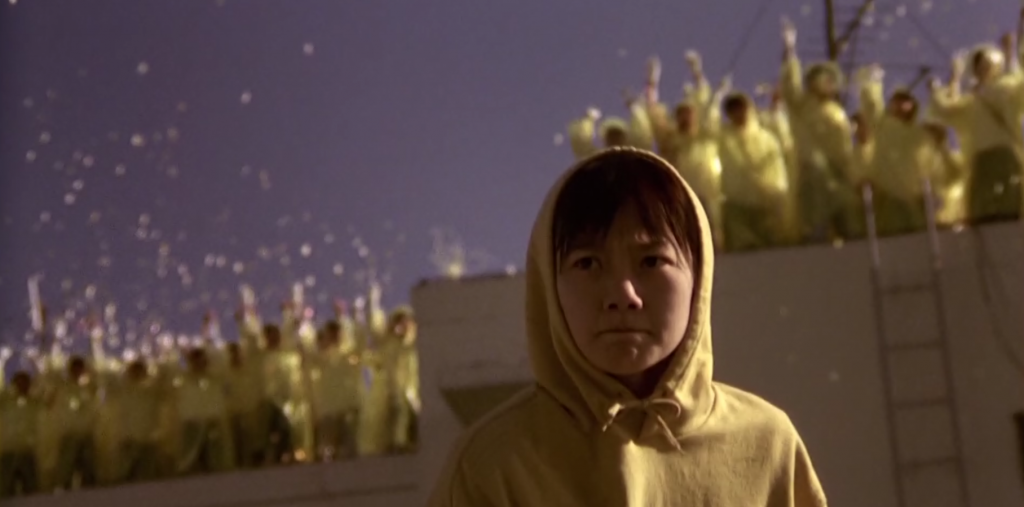
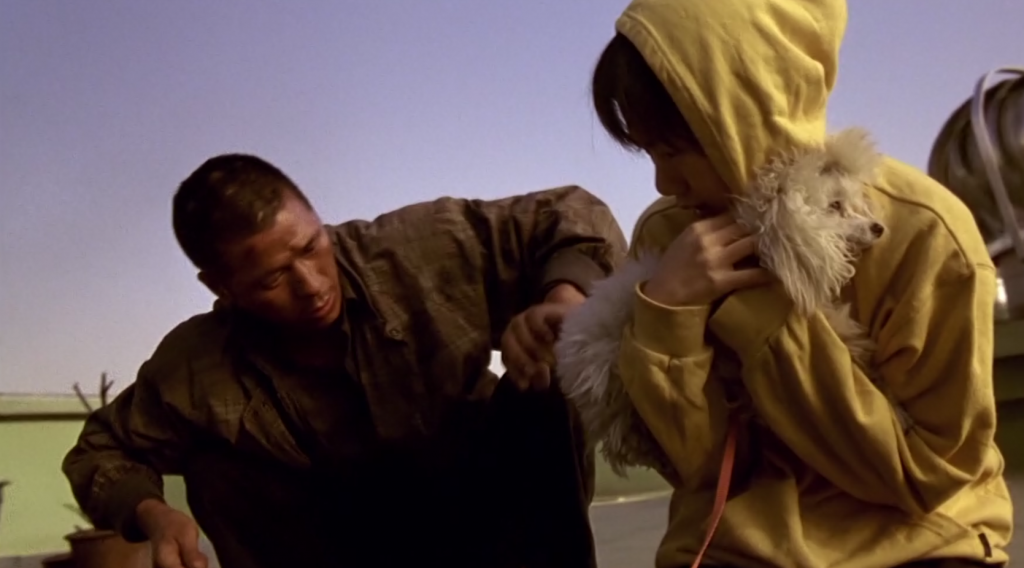
After Yun-Ju has retrieved the dog back, Eun-Sil decides to financially support him (using the money she had saved to bribe the dean) for him to become a professor. As Yun-Ju carries the cake box with money, he meets a woman begging in the subway, the one whom Hyun-Nam had met before. Yun-Ju takes a bill out of the cake box and hands it to the woman and her baby, giving an implication that justice and morality have been recovered not only in Yun-Ju’s mind, but also in society.

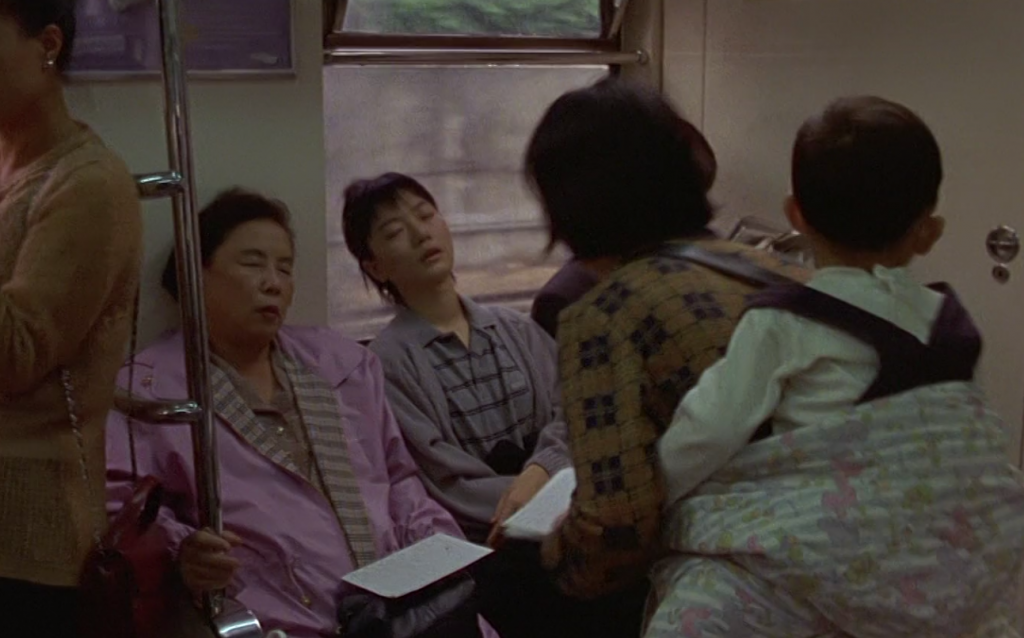
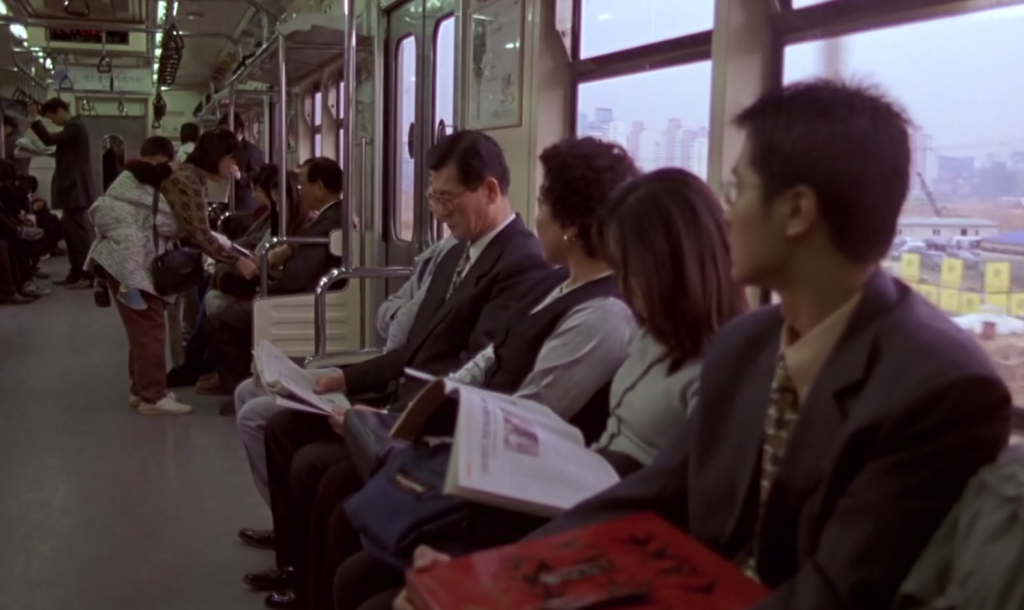
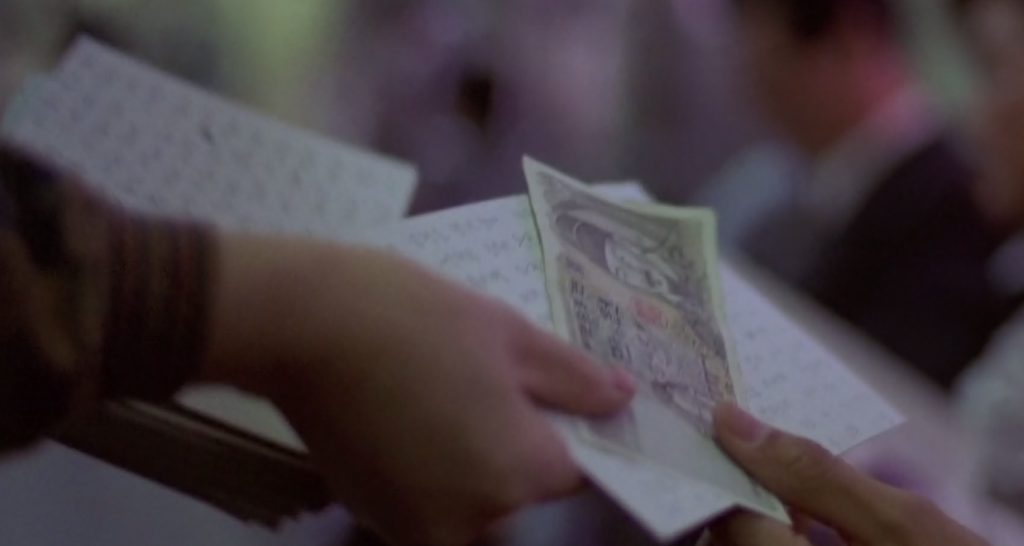
To sum up, Barking Dogs Never Bite portrays the process of recovery of human morality and justice as it also shoots the realistic problems that are happening in the actual human society through using the human-animal relationship, specifically, pet-keeping. The film presented how pets can be a member of a house, a child, or sibling-like existence to someone. Yet, the film also presents meaningful and controversial problems related to human-animal relationships, such as ‘how the border between pet and livestock can be distinguished?’, ‘is it appropriate to operate surgery on animals because humans think it is needed?’, etc.
Yet, in a conclusion, if we were to critically re-evaluate the film, we can raise some doubtful questions about it. Can we say justice has been fully recovered? One of the reasons why Hyun-Nam was willingly and was interested in saving dogs from the serial killer was to gain popularity and to appear on TV. And the actual person who must take responsibility for what they have done, such as Yun-Ju who killed Min Pin, and Byun janitor who even ate the Shih Tzu wasn’t punished, but instead, a powerless homeless man who just attempted to kill and eat Soon-Ja was imprisoned. Moreover, because this film focused on projecting ‘human’ society’s problems, pets in the film were portrayed to have no agency. If you read articles of films on this website such as Rise of the Planet of the Ape, Shaun the Sheep, etc, it is noticeable that these films present animals as agents who have the willpower to achieve their desires. But dogs that appeared in the film were presented and treated in an extreme way. For instance, the repeated appearance of scenes where dogs were passively killed, imprisoned, or used by humans for absurd reasons can be evaluated as threatening or denying animal agency.
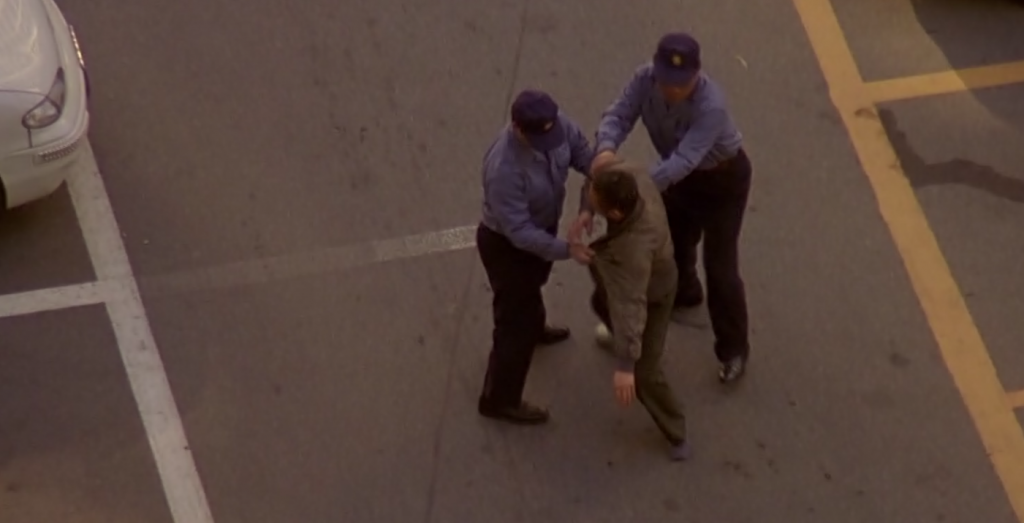
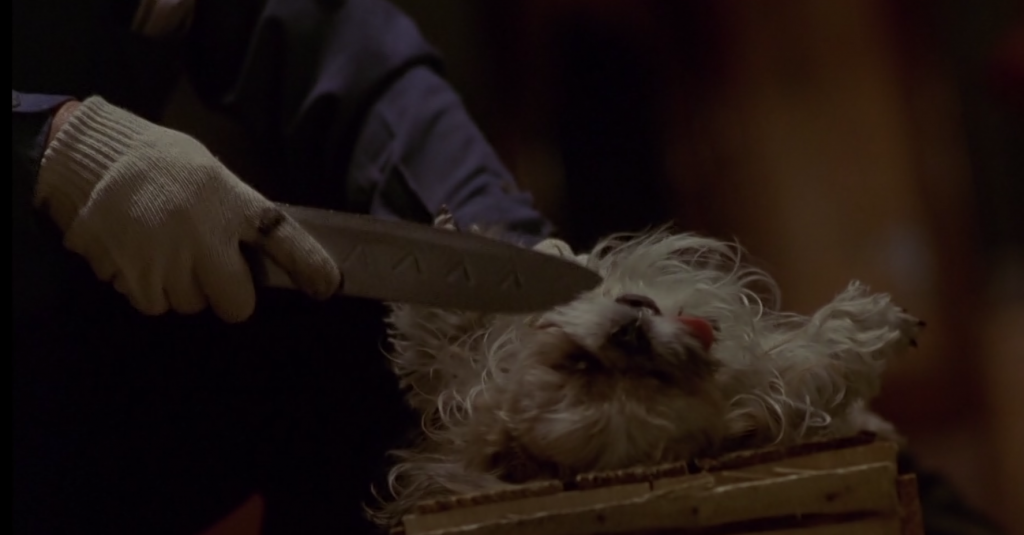
<Figure 29,30>
Bibliography
Bong, Joon-ho, dir., Barking Dogs Never Bite (Cinema Service, 2000)
Connard, Stephen. The Comedic Base of Black Comedy : An Analysis of Black Comedy as a Unique Contemporary Film Genre. May 2005, pp. 1–110, doi.org/10.26190/unsworks/4517.
Figure 1: All That Cinema, digital photograph, 24 Jul. 2021, <https://allthatcinema.com/143>. [Accessed 1 Jan. 2023].
Figure 2: brunch, digital photograph, 18 Apr.2021, <https://brunch.co.kr/@yczzang0323qjyu/295>. [Accessed 1 Jan. 2023].
Figure 3~6, 8~30: screenshots from the film.
Figure 7: “BARKING DOGS NEVER BITE | Official Clip | Exclusively on Curzon Home Cinema Now.” Www.youtube.com, <www.youtube.com/watch?v=nYVI0fwO0Zc>. [Accessed 1 Jan. 2023].
Further Reading
Cheng, Daoyi. “Study on Film Culture under the Perspective of Social Class Focus on South Korean Director Bong Joon-Ho.” Proceedings of the 2022 International Conference on Science Education and Art Appreciation (SEAA 2022), vol. Advances in Social Science, Education and Humanities Research, no. 2352-5398, Nov. 2022, pp. 922–34, https://doi.org/https://doi.org/10.2991/978-2-494069-05-3_112.
Dugnoille, Julien. “To Eat or Not to Eat Companion Dogs: Symbolic Value of Dog Meat and Human–Dog Companionship in Contemporary South Korea.” Food, Culture & Society, vol. 21, no. 2, Mar. 2018, pp. 214–32, https://doi.org/10.1080/15528014.2018.1429075.
Qian, Zhengyi, and Yun Budan Chun. “A Brief Analysis of Bong Joon-Ho’s Film Style of Genre Narrative and Social Metaphor.” Korea-China Economic & Cultural Review, vol. 20, no. 2288-4556, Oct. 2022, pp. 37–58, db-koreascholar-com.ca.skku.edu/article.aspx?code=416952. Korea-China Economic & Cultural District Association.
